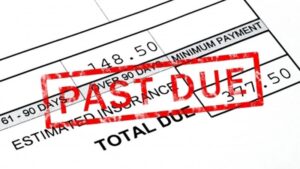Business rescue advice: administration vs CVL

When directors resolve not to rescue an insolvent company, an insolvency practitioner (IP) may recommend placing the company into administration. However, in many instances a creditors’ voluntary liquidation (CVL) would be a more suitable insolvency procedure.
Whereas companies remain in administration for at least 12 months, CVLs usually take less time and therefore incur fewer costs. Lowering costs in a statutory insolvency procedure benefits creditors’ because any savings help to increase the amount creditors receive.
When the administration ends, the IP will move the company into a CVL if it’s appropriate to do so. Money cannot be distributed to creditors in administration without a court order, so the CVL is used as a payment instrument.
Nonetheless, an IP in a CVL can perform most of the duties an IP performs in administration. Subsequently, opting for a CVL without first entering administration saves money, and helps creditors increase the amount they receive.
So why do some insolvency practitioners recommend administration over a CVL even though all that’s required is for them to:
- Realise the insolvent company’s assets into cash
- Make distributions to creditors?
CVLs are usually less expensive than administration
1 possible explanation is the total fee the IP intends to charge cannot be justified with a straightforward liquidation. Administrations can provide an unscrupulous IP with an excuse to charge extra fees, much like a London taxi driver taking a tourist on a 5-mile journey from Piccadilly Circus to Leicester Square.
Some IPs take their clients for a ride. To avoid this happening to you, always seek advice from an independent expert before entering into a statutory insolvency procedure.
Before contacting an IP, it’s important to consider if a director of the company has:
- Conducted antecedent transactions before the insolvency
- Made preferential payments since the insolvency
- Become indebted to the company through an overdrawn director’s loan account
The director(s) of a company that’s entering a CVL will require an IP who understands their particular situation. It’s important that you try not to mislead or upset your IP because they can:
- Request money to reimburse an antecedent transaction
- File an unflattering or adverse account of the director’s behaviour in the ‘D’ report that must be sent the disqualification unit of the Government’s Insolvency Service
You must be confident that your conduct as a director was lawful as the IP has a legal duty to act in the interest of the company’s creditors. As a result, it would be unwise to rely upon an IP for impartial advice.
Debtor Alert: Theodore Global Ltd
Theodore Global Ltd: A Company That Fails to Pay Its Staff and Trades While Insolvent If you’re thinking about working with, or for Theodore Global…
Read MoreIrene MacKenzie- The Gatekeeper of Silence
Irene MacKenzie and the Web Around William Jackson In the shadows of the alternative investment world, where buzzwords are abundant but redemptions are not, one…
Read MoreBilly Jackson Update Part 2: Companies of Interest
In our last blog on Billy Jackson, we exposed the web of enablers supporting his business operations. In this follow-up, we turn the spotlight on…
Read MoreThe Grim Truth for Loan Note Holders -79th Luxury Living Six Ltd (LL6)
No assets or safeguards. No clear path to recovery. If you’re one of the many investors who entrusted your money to The 79th Group’s loan…
Read More



